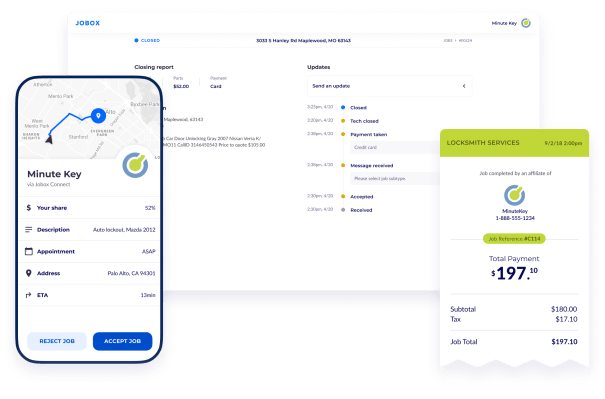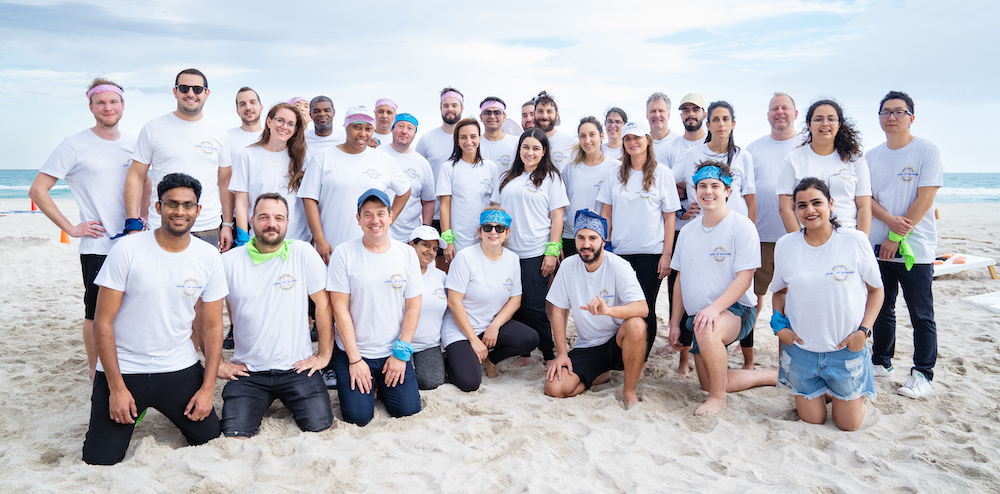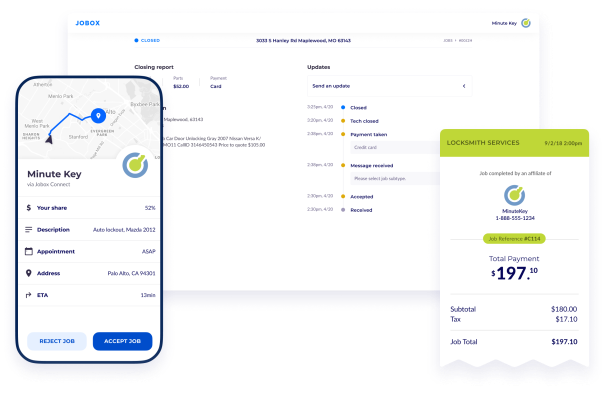
The global pandemic shifted many home service employees from W2 to 1099 status, which is giving Jobox.ai a lot more business.
The Florida and Bay Area-based company is going after the $595 billion home services industry, where skilled labor is facing a shortage, by connecting companies with over 5,000 vetted home service professionals via a marketplace leveraging an artificial intelligence-based infrastructure — thus eliminating the need for customers to vet professionals themselves.
Co-founders Shay Bloch, CEO, Kaushik Pendurthi, COO and Moshe Levi, who used to be a locksmith, started Jobox in 2016. One of the inspirations for the company was Bloch’s mother, who owned a restaurant for over 20 years.
“Even if you ask her today, what is the cost of sales and what is the bottom line of her business, and she won’t know. She says she just knows how to make good food and hope she has good service,” Bloch told TechCrunch. “I always knew that we can help with software for small businesses where we can create an impact, bring change to the bottom line and really change the livelihood in the industry that we chose.”
On one side, the home service professionals have a free toolbox right on their phone to get their small business up-and-running. On the other side, Jobox works with more than 50 large organizations that often outsource repair work to match jobs they have with the bank of professionals based on criteria, like skill set and location.
Jobox makes money from the transaction when the professional completes the job. For example, the professional gets 60% and Jobox and the originating organization split the difference.
Leveraging technology for the home repair market has become an attractive area for venture capital funding. Earlier this year, Zuper raised $13 million to help technicians make sure they had everything they needed when they showed up to a repair.

Jobox teamImage Credits: Jobox.ai
We also saw Fuzey bring in $4.5 million in seed funding for its “digital one-stop shop” for small businesses and independent contractors, and Puls Technologies get $15 million for its mobile app connecting tradespeople with on-demand home repair services. There are also larger companies in the space, like Jobber, which announced $60 million in funding.
Meanwhile, Jobox works with professionals in 39 states and has so far processed more than $1 billion of transactions on its platform. It did over $300 million last year alone in gross merchandise volume and $10 million in revenue, Bloch said.
It too attracted funding over the years — $58 million in total, and Tuesday marks its official “coming out of stealth mode” with a new $42 million of Series B funding. General Catalyst led the round and was joined by new and existing investors, including Resolute VC, NNS, Expanding Capital and Joey Low.
The new funding will enable the company to go into more cities, attract more professionals and expand into other home service positions — currently it is mainly locksmiths, garage door repair, pavement repair and carpet cleaning. They are looking at plumbing and electricians, too.
“We spent some time getting the product really right and making sure that our product is solving the right problems and the critical problems for our user base,” Pendurthi said. “We want to scale, and we want to have top talent. We also want to make sure that we’re building partnerships with different kinds of B2B companies so that we can serve our users even better, and we want to expand our products.”
Credit: Source link


Comments are closed.